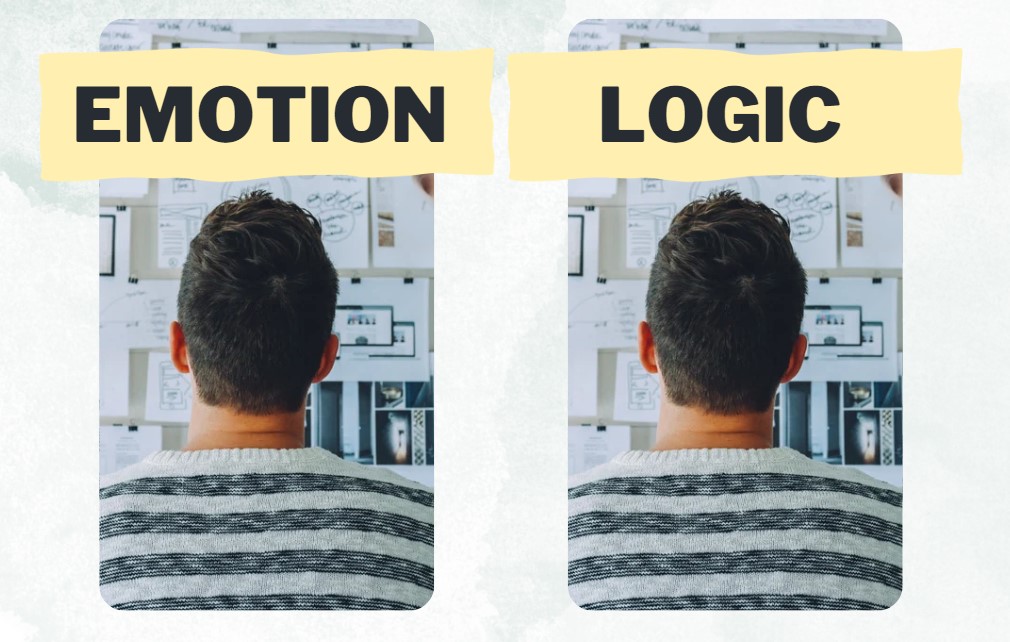Effective marketing is not just about providing information and features, but also about creating an emotional connection with customers. This is because most human decision-making is emotional, rather than logical. When marketers understand and leverage emotions, they can create more impactful campaigns and build stronger relationships with their customers.
The Importance of Emotional Marketing
Marketing is all about persuading customers to take action – whether it’s to buy a product, sign up for a service, or support a cause. However, traditional marketing approaches that focus on logical arguments, data, and features are often not enough to persuade customers.
According to a study by the Institute of Practitioners in Advertising, campaigns that rely on emotional messaging are twice as effective as those that use rational messaging. Emotional ads are also more likely to be shared, remembered, and lead to positive brand associations.
This is because emotions are a primary driver of human behavior. Research has shown that people make decisions based on how they feel, rather than what they know. Emotions can also create a sense of urgency and motivate people to take action.
In other words, effective marketing needs to connect with customers on an emotional level to create a sense of relevance, trust, and loyalty.
Emotional Decision-Making for B2C and B2B Customers
While emotions play a role in all decision-making, the specific emotions that drive customer behavior can vary depending on the context. For example, B2C customers are more likely to be motivated by personal desires, while B2B customers are more concerned with practical benefits.
B2C customers
B2C customers are driven by emotions such as happiness, pleasure, and status. They are often motivated by self-expression and social validation. B2C marketers can appeal to these emotions by creating aspirational or relatable marketing campaigns that tap into customers’ desires and values.
For example, Coca-Cola’s “Share a Coke” campaign leveraged the emotional desire for personalization and social connection by printing people’s names on bottles. The campaign resulted in a 2.5% increase in sales in the US and a 7% increase in Australia.
B2B customers
B2B customers are driven by emotions such as trust, security, and efficiency. They are often motivated by practical benefits such as cost savings, productivity, and risk reduction. B2B marketers can appeal to these emotions by providing data-driven solutions that address their customers’ pain points and deliver measurable results.
For example, IBM’s “Smarter Planet” campaign leveraged the emotional desire for innovation and efficiency by highlighting how IBM’s technology solutions can help businesses become more sustainable and profitable. The campaign resulted in a 22% increase in revenue for IBM’s business analytics division.
Emotional Signaling to Buyers
To connect with customers on an emotional level, marketers need to understand the emotional signals that buyers are looking for. Customers tend to seek out brands that are trustworthy, empathetic, and relatable, and they are willing to pay a premium for these qualities. Emotional signaling is the process by which brands communicate these qualities to their customers.
Reputation
One way that brands can signal their trustworthiness is by emphasizing their reputation or track record. This can be done through testimonials, case studies, or other forms of social proof. By demonstrating that other customers have had positive experiences with the brand, marketers can create a sense of trust and reliability.
Empathy
Empathy is another key emotional signal that can help brands connect with customers. This can be demonstrated through targeted messaging that speaks directly to the customer’s pain points or challenges. For example, a skincare brand might emphasize its understanding of the frustrations that come with acne or other skin issues. By acknowledging the customer’s struggles and offering a solution, the brand can build empathy and trust.
Relatability
Relatability is another important emotional signal that can help brands connect with customers. This can be achieved through messaging that is tailored to the customer’s values, interests, or lifestyle. For example, a fitness brand might appeal to customers who value health and wellness by showcasing real people who have achieved their fitness goals using the brand’s products.
Creating Long-Term Emotional Connections with Customers
While emotional signaling is important for building initial connections with customers, it’s also crucial for creating long-term loyalty. By cultivating an emotional bond with customers, brands can turn them into brand advocates who are willing to promote the brand to others.
One effective strategy for building long-term emotional connections is through storytelling with compelling content marketing. By sharing the brand’s history, mission, and values in a compelling way, marketers can create a sense of connection and shared identity with customers. This can be done through videos, social media posts, or other forms of content.
Another effective strategy is through community building. By creating opportunities for customers to connect with each other and with the brand, marketers can create a sense of belonging and loyalty. This can be done through online forums, events, or other forms of engagement.
Marketers also employ personalization is another effective strategy for building emotional connections. By tailoring messaging and offers to individual customers’ interests and preferences, brands can demonstrate that they understand and care about their customers. This can be done through targeted emails, personalized offers, or other forms of one-to-one communication.
Growing Brand Advocates
Whether marketing to B2C or B2B customers, marketers need to understand the emotional drivers that motivate buying decisions and use emotional signaling to communicate trustworthiness, empathy, and relatability. By creating long-term emotional connections with customers through storytelling, community building, and personalization, brands can turn customers into loyal brand advocates who are willing to promote the brand to others.

